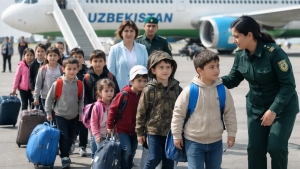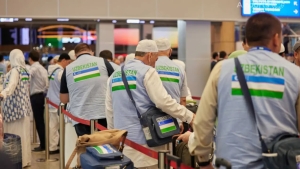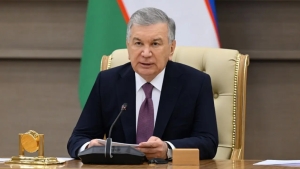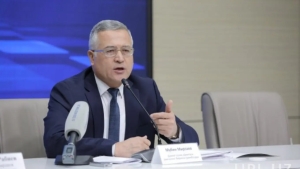Night buses will start operating in Tashkent in 2025

Night bus services will be launched in Tashkent city by the end of 2025. This was reported by Zamin.uz.
This was announced by Olloyor Norbotayev, acting head of the Tashkent city transport and road-transport infrastructure development department (source: Gazeta.uz). At the meeting, it was stated that red-colored buses operating from 22:00 at night until 06:00 in the morning will be introduced in the capital.
These buses will run through airports, railway stations, metro stations, tourist streets, shopping and entertainment centers, large farmers' markets, student dormitories, and hospitals. Night bus routes will be organized in two phases.
In the first phase, there will be 8 routes covering a total of 136 kilometers. A total of 31 buses will operate on these routes.
The routes are as follows: Qoyliq farmers' market — Husayn Boyqaro street, Qipchoq street — Ozgarish metro station, Chilonzor goods market — Gulxaniy street, Local airport (Terminal 3) — Chorsu shopping center, Shifobakhsh waters street — Chorsu ASHB, Yunusobod district 6th block — Yunusobod district 17th block, and Tashkent station ASHB — Shofayz neighborhood. The buses will be numbered T1, T2, T3, etc., and the T1 route is planned to be launched by the end of the year.
The T1 route starts from Husayn Boyqaro street in Bektemir district and moves towards Qoyliq market. In the second phase, there will be 7 routes with a total length of 98 kilometers.
In this phase, 23 buses will operate, and funding of 14.2 billion soms is planned. Among the routes are Gishtkoprik border post — Amir Temur avenue, TTZ ASHB — Amir Temur avenue, Food city complex — Amir Temur avenue, and other routes.
The main goal of organizing tourism routes through night buses is to identify city areas where movement is necessary, plan passenger flow, ensure safety, and implement monitoring and digital payment systems. Currently, tourism routes are being organized on several streets in Tashkent city.
The ticket price will be the same as for daytime routes, with a total of 54 buses operating on these routes. According to Norbotayev, this system will impose an average burden of 33 billion soms on the local budget.
Source: Gazeta.uz







